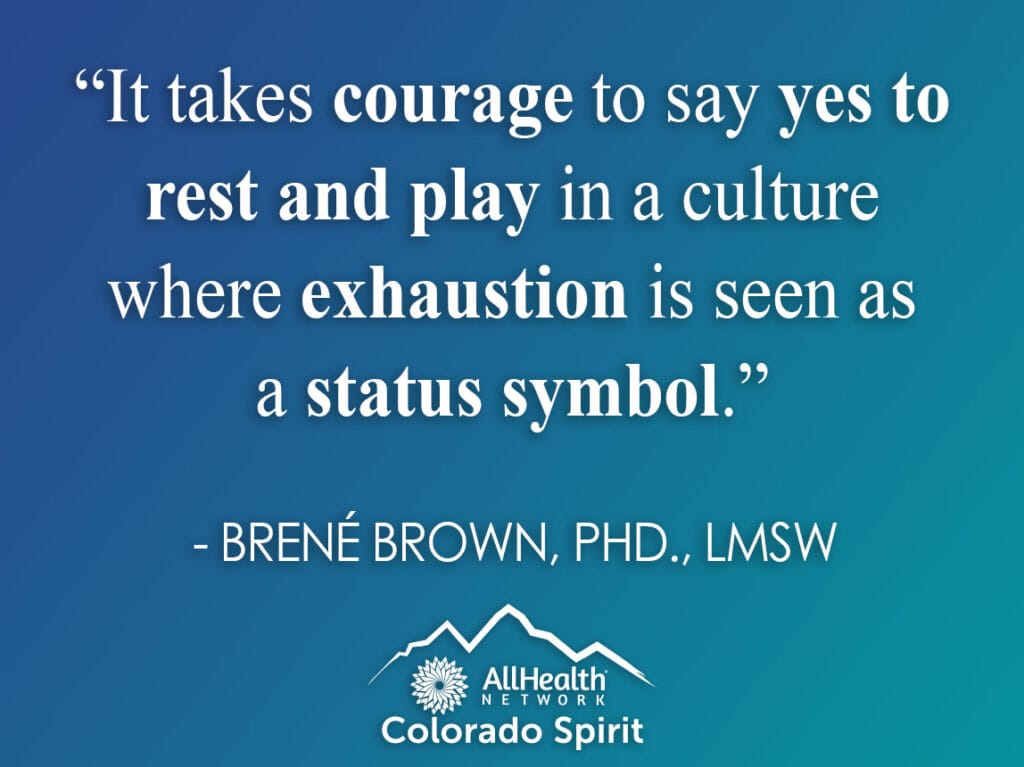Lots of us have noticed changes in our energy level over the past several months as the pandemic has progressed. Some of us consistently feel more tired and drained no matter how much we slept the previous night. Others of us have days of high energy, followed by days we feel exhausted, and still others just notice a different level of energy. The good news? This is a completely understandable and natural reaction to living with the daily stress of the pandemic. Nothing is “wrong” with you if you are feeling this way – it just means you are a human living in an incredibly stressful situation. The disappointing news? The nature of a pandemic means this is not likely to change anytime soon.
Ever wonder why this happens though? There are a few things that likely contribute.
- Our body’s natural stress reaction – Whether we identify our experience living during a pandemic as stressful or not, our body is reacting to the new threat in our lives and our stress response is primed. Dr. Rebecca S. Heiss does a great job explaining our physiological response to stress and how this ultimately leads to physical exhaustion. She also includes practical actions to take to counteract the stress hormones flowing through our systems.
- Multiple traumatic and stressful events – Life does not stop because of a pandemic. Racial injustice, financial concerns, fear of violence, other health issues, interpersonal relationships, etc., are just as traumatic and stressful as they were before the pandemic. Responding to multiple events like this can set us up for crisis fatigue and emotional overwhelm. This article from Psychology Today explains crisis fatigue more.
- Media exposure – Research shows that adults and children who watched greater amounts of media coverage of the events on 9/11 showed greater levels of stress reaction than those who watched less coverage. Considering that social media use is more widespread now than it was in 2001 and the fact that there are multiple, significantly traumatic and stressful events that are being highlighted every day, media exposure can be a major source of stress.
- Our behaviors – For many of us, changes in our daily life since the pandemic are likely contributing to our experience of exhaustion. Less physical activity, changes in eating patterns, difficulty sleeping, increased screen time, and the increased use of video conferencing can lead us to feel more drained.
- Doing more – Even though parts of our community are closed or have limited access, no one is “doing” less. We are still pulled in multiple directions and have our attention split between more tasks. We also have new challenges to navigate. The constant weighing of risk associated with everyday activities, unique challenges around childcare and education, supporting older or medically compromised family and friends, or disagreement in interpersonal relationships about the pandemic are things that can feel very different and new to some of us.
Here are a few things that can help in the moment
- Rest when you are tired – Be careful of long naps as that can throw off our sleep schedule, but giving yourself a few minutes to close your eyes, be still, or otherwise rest can help.

- Aim for balanced eating and sleeping – Note, we said balanced, not perfect. There might be days that you have more snacks or sweets or rest less, but aim for balance most days.
- Move your body. We keep saying it, but physical activity is key. Because at least part of physical exhaustion is related to elevated levels of stress hormones, engaging in physical activity can be beneficial to help our bodies regulate this.
- Get outside – Research has shown many ways that being in nature, even for as little as 20 minutes, can be impactful to our stress levels and our mood.
- Limit media consumption, including social media – Challenge yourself to really observe how your media consumption is impacting you. I often find that I feel “fine” after scrolling through the daily updates on COVID, racial injustices, and political arguments, but then find myself short-tempered, sad or anxious later on. Many of us believe we “need to know” the current situation. Push back on this thought though – how much media do you really need to accomplish this? The 24-hour news cycle means that much of what is pushed out throughout the day is repetitive. Others of us believe that media consumption helps us process our experience or connect with others. We would gently suggest that directly connecting with trusted others in your social network is far more effective at helping process our experiences.
- Stick with routines, even if you need to create a new pandemic routine – It is easy to feel unmotivated and have low energy without a routine. This is true for kids and adults.
- Find ways to relax your body and mind to combat your physical stress response – This will look different for us all, but breathing exercises, mindfulness, progressive muscle relaxation, yoga, and imagery can help us relax, which can help with our energy level.
- Find compassion for yourself and let go of self-judgement – Being hard on yourself or telling yourself to “get over it” won’t give you more energy. It will likely drain you even more. Remind yourself that you are not alone in this experience. Give yourself permission to rest as you need and find patience for days that might feel less productive.
Would speaking to someone help?
AllHealth Network, along with other community mental health centers, is continuing to provide services via telehealth and by phone. Our Crisis Walk-in Center remains open 24/7 and offers in-person care to those experiencing a mental health crisis. For more information and to get connected with our services, please call 303-730-8858. To learn more about what other community mental health centers are doing, please visit the Colorado Behavioral Health Council COVID-19 website.
If you are experiencing a mental health crisis and are in need of immediate assistance, please call the Colorado Crisis Hotline at 1-844-493-TALK (8255) or text TALK to 38255
How do you know if you’re experiencing a mental health crisis? Click here to learn about mental health crisis warning signs to look out for from the National Alliance on Mental Illness (NAMI)


